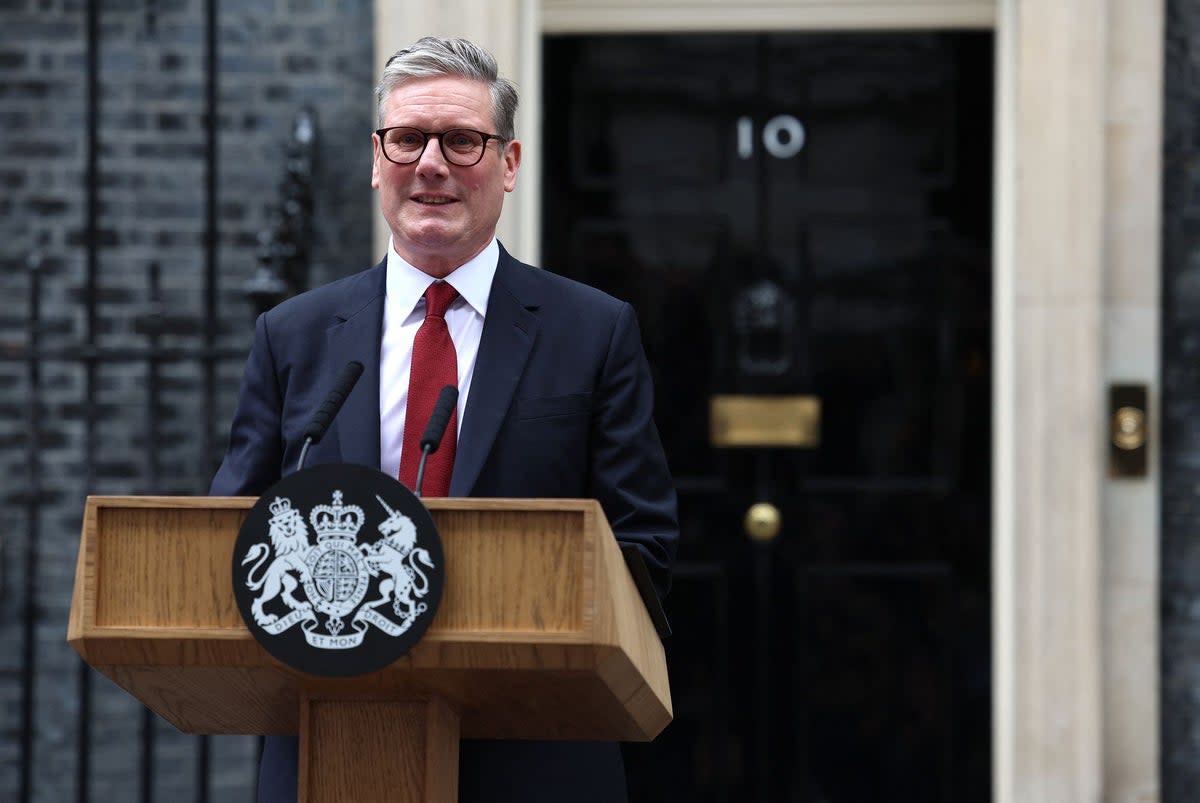OPINION - A Labour landslide? On that share of the vote? In this economy?

If I woke you up first thing this morning and told you Labour had secured 33.7 per cent of the vote, you might reasonably ask: what the hell am I doing in your house? But eventually, you might also wonder how on earth Keir Starmer managed to chuck away a seemingly unassailable poll lead. Except, of course, he didn't.
Labour has secured a landslide victory at the 2024 general election. As of 3pm, the party has won 412 seats – representing a gain of 211 on the previous election and an expected majority of 170. Fewer than the 179 Tony Blair achieved in 1997, but from far further back than the OG. Recall that John Major had lost his majority prior that election.
This is not the start of a rant against our first-past-the-post electoral system. Labour fought this campaign with a clear view to winning votes and seats in electorally efficient locations, rather than piling up ever more support in safe urban constituencies. Equally, the voters themselves are alive to the game. In areas where the Liberal Democrats seemed the obvious challenger to the Tories, voters so inclined pulled that particular lever.
But let's be real: this was an anti-Tory vote. A snap poll by Savanta has found that three-quarters (73 per cent) of the public said the largest factor behind Labour's landslide victory was wanting the end of a Conservative government, rather than a desire for a Labour government.
And that's ok! The Tories screwed up, Labour seemed like a non-crazy alternative, there was a change of government. All seems pretty normal to me. But the challenge for Labour will be to actually do things in government that will improve people's lives and convince enough of them to vote for them next time. Because 33.7 per cent in 2029 ain't gonna deliver 400+ seats.
No one ever quite explained what levelling up meant in reality. Was it a fundamental rebalancing of the British economy, or merely adding a lick of paint to dilapidated high streets? But building more houses? People know what that looks like. With interest rates poised to fall and the political certainty of a new and powerful government in place, voters will expect to be able to move into some of these new homes by the time of the next election. If they can't, Labour will be in trouble.
There are so many threads to pull from these results it is difficult to know what this newsletter should have been about. There is the collapse of the Scottish National Party. The death of the Tories in Wales. The rise of Reform UK. The rebirth of the Lib Dems. The success of independents. The appalling harassment directed a female candidates. The sheer number of senior ministers to lose their seats. Liz Truss no longer being a public official of any capacity. A lot has happened in in short period of time.
But really, the big story is the new volatility of UK politics. Prior to this election, the last time a single-party majority government was replaced by a different single-party majority government was 1970. Change – when it happens – has tended to be slow. But no longer. We have gone from Tory landslide to Labour one. And it can happen again.
With both main parties facing challenges to their respective left and right flanks, we could be in for a tetchy parliament. Labour is both statistically hegemonic and oddly brittle. Whether it breaks or not depends on what it can achieve in office. Which I suppose is kind of the point. But with the extremes in British politics knocking on the door, the stakes could scarcely be higher.
This article appears in our award-winning newsletter, West End Final – delivered 4pm daily – bringing you the very best of the paper, from culture and comment to features and sport. Sign up here.


